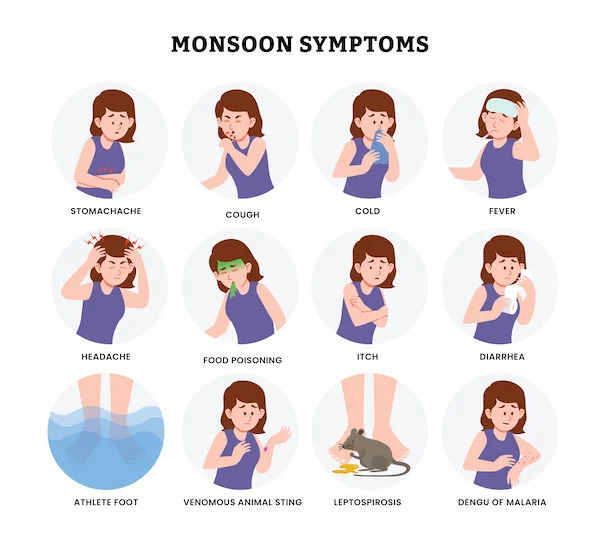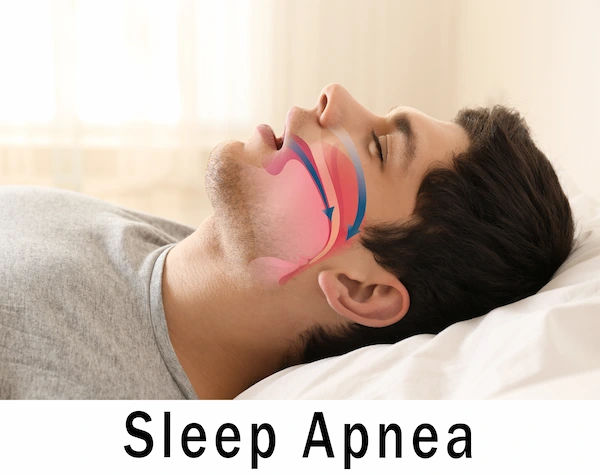Understanding Obstructive Sleep Apnea (OSA)
Gain a comprehensive understanding of Obstructive Sleep Apnea (OSA), a common sleep disorder. Learn about its causes, key symptoms like loud snoring and daytime fatigue, potential health risks, and effective treatment options for better sleep and well-being.

Written by Dr. Dhankecha Mayank Dineshbhai
Reviewed by Dr. Siri Nallapu MBBS
Last updated on 20th Aug, 2025
.webp?tr=q-80,f-webp,w-350,dpr-2,c-at_max 700w)
Introduction
Sleep is essential for good health, but for some people, a good night’s rest is disrupted by a condition called Obstructive Sleep Apnea (OSA). If you or a loved one snores loudly, wakes up gasping for air, or feels tired despite a full night’s sleep, OSA could be the reason. Let’s understand what OSA is, its symptoms, causes, and how to manage it effectively.
What is Obstructive Sleep Apnea (OSA)?
Obstructive Sleep Apnea is a sleep disorder where breathing repeatedly stops and starts during sleep. This happens because the throat muscles relax too much, blocking the airway. When breathing pauses, oxygen levels drop, forcing the brain to wake you up briefly to reopen the airway. These interruptions can happen many times an hour, preventing deep, restful sleep.
Common Symptoms of OSA
Many people with OSA don’t realize they have it because the symptoms occur during sleep. However, some common signs include:
Loud snoring (often noticed by a partner)
Gasping or choking during sleep
Waking up with a dry mouth or headache
Excessive daytime sleepiness (feeling tired even after sleeping)
Difficulty concentrating or memory problems
Mood changes, such as irritability or depression
High blood pressure (untreated OSA can worsen hypertension)
If you experience these symptoms, it’s important to consult a doctor.
What Causes OSA?
Several factors increase the risk of developing OSA:
1. Excess Weight – Fat deposits around the neck can narrow the airway.
2. Age – OSA is more common in middle aged and older adults.
3. Gender – Men are more likely to have OSA, though risk increases in women after menopause.
4. Family History – Genetics can play a role in airway structure.
5. Smoking & Alcohol – These relax throat muscles, worsening OSA.
6. Nasal Congestion – Allergies or a deviated septum can contribute.
7. Medical Conditions – Diabetes, high blood pressure, and heart disease are linked to OSA.
How OSA Affects Your Health?
Untreated OSA doesn’t just cause tiredness—it can lead to serious health problems:
Heart Disease – Frequent oxygen drops strain the heart, increasing the risk of high blood pressure, heart attacks, and strokes.
Type 2 Diabetes – OSA affects insulin resistance.
Daytime Fatigue – Poor sleep increases the risk of accidents while driving or working.
Mental Health Issues – Chronic sleep deprivation can lead to anxiety and depression.
Managing and Treating OSA
The good news is that OSA can be managed effectively with lifestyle changes and medical treatments.
Consult Top Specialists for Personalised Tips
Lifestyle Changes
1. Maintain a Healthy Weight – Losing even a small amount of weight can reduce throat obstruction.
2. Sleep on Your Side – Sleeping on your back makes OSA worse; try side sleeping.
3. Avoid Alcohol & Sedatives – These relax throat muscles, worsening apnea.
4. Quit Smoking – Smoking increases inflammation in the airway.
5. Exercise Regularly – Helps with weight management and improves sleep quality.
Medical Treatments
1. CPAP (Continuous Positive Airway Pressure) Therapy – A machine delivers gentle air pressure through a mask, keeping the airway open.
2. Oral Appliances – Customfit devices reposition the jaw to prevent airway blockage.
3. Surgery – In severe cases, procedures like tonsil removal or jaw repositioning may help.
When to See a Doctor?
If you or someone you know shows signs of OSA, don’t ignore them. A sleep study (polysomnography) can diagnose the condition. Apollo 24|7 offers convenient sleep tests and consultations with specialists who can guide you toward better sleep health.
Final Thoughts
Obstructive Sleep Apnea is more than just snoring—it’s a serious condition that affects overall health. Recognizing the symptoms and seeking treatment can improve sleep, energy levels, and longterm wellbeing. Small lifestyle changes and medical support can make a big difference.
If you suspect OSA, book a consultation today with a sleep specialist on Apollo 24|7 and take the first step toward restful, healthy sleep.
Consult Top Ayurvedic Practitioner
Consult Top Specialists for Personalised Tips

Dr. Swathi Reddy Perugu
General Physician/ Internal Medicine Specialist
7 Years • MBBS, MD (General Medicine)
Hyderabad
Health plus, Hyderabad

Dr. Rajib Ghose
General Physician/ Internal Medicine Specialist
26 Years • MBBS
Kolkata
B Ghose Foundation Doctor's Chamber, Kolkata
(25+ Patients)

Dr. Chethan T L
General Physician/ Internal Medicine Specialist
5 Years • MBBS, MD, DNB (General Medicine)
Bengaluru
Apollo Medical Center, Marathahalli, Bengaluru

Dr. Rajib Ghose
General Practitioner
25 Years • MBBS
East Midnapore
VIVEKANANDA SEBA SADAN, East Midnapore
Dr. Paras Gangwal
General Physician/ Internal Medicine Specialist
28 Years • MBBS,MD General Medicine
Delhi
Dr Paras Gangwal Clinic, Delhi
Consult Top Ayurvedic Practitioner

Dr. Swathi Reddy Perugu
General Physician/ Internal Medicine Specialist
7 Years • MBBS, MD (General Medicine)
Hyderabad
Health plus, Hyderabad

Dr. Rajib Ghose
General Physician/ Internal Medicine Specialist
26 Years • MBBS
Kolkata
B Ghose Foundation Doctor's Chamber, Kolkata
(25+ Patients)

Dr. Chethan T L
General Physician/ Internal Medicine Specialist
5 Years • MBBS, MD, DNB (General Medicine)
Bengaluru
Apollo Medical Center, Marathahalli, Bengaluru

Dr. Rajib Ghose
General Practitioner
25 Years • MBBS
East Midnapore
VIVEKANANDA SEBA SADAN, East Midnapore
Dr. Paras Gangwal
General Physician/ Internal Medicine Specialist
28 Years • MBBS,MD General Medicine
Delhi
Dr Paras Gangwal Clinic, Delhi



.webp)
